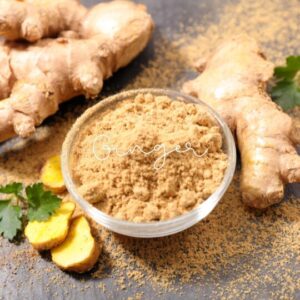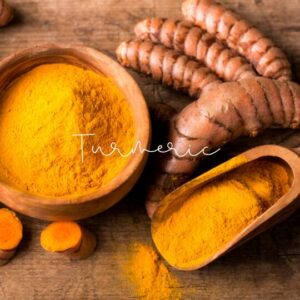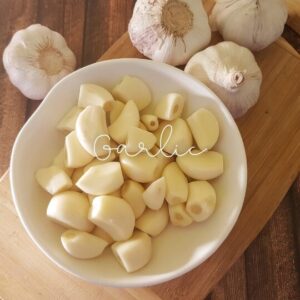If you’re looking to reduce your reliance on over-the-counter medications or embrace a more natural approach to health and wellness, this guide is for you. These 8 essential natural remedies are not only effective but also easy to keep on hand for a variety of minor health concerns.
Let’s dive into these must-have additions for your natural wellness toolkit!
Why Keep Natural Remedies at Home?
Natural remedies can be a great first line of defense for minor health issues. They are:
- Cost-effective.
- Free of harsh chemicals.
- Easy to integrate into your daily routine.
8. Chamomile Tea: Why Is Chamomile Tea Good for You?
Chamomile tea is well-known for its calming properties, but its benefits go far beyond promoting better sleep.
Bonus: Chamomile’s anti-inflammatory and antispasmodic properties make it a versatile remedy for both physical and mental wellness.
Benefits: Relieves indigestion, bloating, menstrual cramps, and mild anxiety.
How to Use: Steep chamomile flowers or tea bags in hot water for 5 minutes. Add honey for extra soothing effects.

This herbal powerhouse is renowned for its gentle calming effects, making it a go-to remedy not just for better sleep, but also for various other health benefits.
Chamomile tea is derived from the dried flowers of the chamomile plant and has been used for centuries in traditional medicine for its anti-inflammatory, antioxidant, and mild astringent properties.
Beyond its popular use as a sleep aid, chamomile tea offers significant relief for mild stomach ailments including indigestion, gas, and bloating.
Its antispasmodic properties are especially beneficial for reducing muscle spasms and menstrual cramps, providing a natural solution to these uncomfortable conditions.
Moreover, the calming effects of chamomile can also be beneficial for stress and anxiety relief.
Drinking a warm cup of chamomile tea promotes a sense of relaxation and well-being, which can be particularly helpful after a long, stressful day.
This makes it not just a bedtime favorite but a versatile herbal remedy that supports overall mental and physical health.
For those looking to incorporate chamomile tea into their wellness routine, it’s recommended to brew it with hot water and let it steep for about 5 minutes to fully extract its beneficial compounds.
You can enjoy it plain or sweeten it with a touch of honey for added flavor and extra soothing properties.
7. Honey: Is Honey a Natural Medicine?
Honey is more than just a sweetener—it’s a natural antibacterial and antifungal powerhouse.
Tip: Opt for raw, unprocessed honey for maximum health benefits, as it retains more enzymes and antioxidants.
Benefits: Treats coughs, soothes sore throats, and aids in wound healing.
How to Use: Apply raw honey to minor cuts or burns, or take a spoonful to calm a persistent cough.

More than just a way to enhance the flavor of our food, honey boasts numerous health benefits that make it a staple in any natural remedy cabinet.
Its antibacterial and antifungal properties, primarily derived from the natural presence of hydrogen peroxide and its low pH level, make it exceptional for wound care.
When applied topically, honey can help reduce infection and promote quicker healing of minor cuts and burns.
Honey’s benefits extend beyond skin care. It is an effective natural remedy for coughs and sore throats, rivaling many over-the-counter treatments.
Studies have shown that honey can coat and soothe the throat, while its antibacterial properties help to fight the underlying infection.
A spoonful of honey, particularly before bedtime, can reduce the severity and frequency of coughs, offering a welcome relief from sleepless nights caused by persistent coughing.
It’s important to note that raw, unprocessed honey is most effective for medicinal purposes.
Unlike commercial honey, raw honey is not pasteurized or filtered extensively, thus retaining its full range of enzymes, antioxidants, and antibacterial agents.
Always ensure that it is pure and free from additives to maximize its health benefits.
For daily use, whether adding it to tea, yogurt, or simply enjoying a spoonful directly, honey not only delights the palate but also provides a powerful boost to your health regimen.
6. Aloe Vera: What Are Aloe Vera’s Healing Properties?
Aloe vera is a soothing remedy for skin and digestive health.
Bonus: Aloe vera can also help with digestion when consumed in small amounts as juice.
Benefits: Treats burns, cuts, dry skin, and sunburns. Can also act as a daily moisturizer.
How to Use: Slice open a leaf to extract the gel, applying it directly to the skin or mixing it into skincare products.

Known primarily for its skin-soothing properties, Aloe Vera is invaluable for treating burns, cuts, and other skin irritations.
The gel inside the plant’s thick, succulent leaves contains bioactive compounds, including vitamins, minerals, amino acids, and antioxidants, which are responsible for its healing properties.
When applied to the skin, Aloe Vera gel has an immediate cooling effect that helps to reduce inflammation and pain.
It is especially famous for its ability to treat sunburns, where it not only soothes pain but also accelerates the healing process by promoting new skin cell production and improving skin moisture retention.
Beyond its uses for acute injuries, Aloe Vera is also excellent for general skincare.
It can be used as a daily moisturizer for the face and body, particularly for those with dry or sensitive skin.
The gel’s hydrating properties help to combat dryness without leaving a greasy residue, making it ideal for use under makeup or as a soothing treatment after exposure to harsh elements.
For those interested in natural health and beauty products, Aloe Vera can be used in homemade face masks, scrubs, or even as a natural hair conditioner.
Its gentle, natural composition makes it suitable for all ages and skin types.
To use, simply cut a small portion of an Aloe leaf, slice it open, and extract the clear gel.
Apply the gel directly to the affected area or incorporate it into your daily skincare routine.
Regular use of Aloe Vera can improve skin elasticity and help maintain a healthy, radiant complexion.
5. Ginger: Can Ginger Be Used as Medicine?
Ginger is a natural anti-inflammatory and digestive aid with numerous health benefits.
Caution: If on blood thinners, consult a healthcare provider before increasing ginger intake.
Benefits: Relieves nausea, motion sickness, menstrual pain, and arthritis symptoms.
How to Use: Add fresh ginger to meals, brew it as tea, or take it in supplement form.

Ginger is particularly known for its impressive effects on digestive health. It works effectively to alleviate various forms of nausea, including motion sickness, morning sickness, and nausea induced by chemotherapy.
This is largely due to gingerol, the main bioactive compound in ginger, which helps speed up stomach emptying and stimulate the digestive muscles.
In addition to its gastrointestinal benefits, ginger is a powerful anti-inflammatory agent. It works similarly to non-steroidal anti-inflammatory drugs (NSAIDs), but without the side effects, making it an excellent choice for natural pain relief.
People with inflammatory conditions such as arthritis may find ginger particularly beneficial.
Ginger’s benefits continue with its antiviral properties.
Research has shown that it can help fight respiratory infections by inhibiting the growth of certain viruses, including RSV, a common cause of respiratory infections.
For daily use, ginger can be consumed in various forms—fresh, powdered, as a tea, or even pickled.
A simple way to incorporate it into your diet is by adding fresh ginger to your meals or drinking ginger tea.
To make ginger tea, slice some fresh ginger root and steep it in boiling water for several minutes; this not only soothes the stomach but can also warm you up on a cold day.
Remember, while ginger is generally safe for most people, it’s powerful and should be used judiciously, especially if you’re on medications like blood thinners, as it can enhance their effects.
4. Turmeric: How Does Turmeric Help Reduce Inflammation?
Turmeric, powered by curcumin, is a natural anti-inflammatory superstar.
Tip: Turmeric supplements can provide a higher concentration of curcumin for therapeutic use.
Benefits: Eases arthritis pain, boosts brain function, and supports overall immunity.
How to Use: Add turmeric to curries, smoothies, or teas. Combine with black pepper to enhance curcumin absorption.

Turmeric has been a cornerstone of traditional medicine for thousands of years, particularly in Ayurvedic practices.
Its rich, golden color comes from curcumin, the active compound that offers a wealth of health benefits.
Turmeric’s most celebrated benefit is its anti-inflammatory properties.
Curcumin has been shown to be as effective as some anti-inflammatory drugs, without the side effects.
This makes turmeric an excellent natural treatment for conditions characterized by inflammation, such as arthritis.
Studies have shown that regular consumption of turmeric can significantly reduce pain and stiffness in arthritis patients.
In addition to its effects on physical health, turmeric has promising benefits for cognitive function.
Curcumin has been observed to boost levels of the brain hormone BDNF (Brain-Derived Neurotrophic Factor), which increases the growth of new neurons and fights various degenerative processes in the brain.
This could potentially be beneficial in delaying or even reversing many brain diseases and age-related decreases in brain function.
To incorporate turmeric into your diet, you can add it to smoothies, soups, and, of course, curries.
However, curcumin is poorly absorbed into the bloodstream, so it’s beneficial to consume it with black pepper, which contains piperine, a natural substance that enhances the absorption of curcumin by 2000%.
For those looking to maximize its therapeutic effects, turmeric can also be taken as a supplement in extract form, which typically contains significant amounts of curcumin.
3. Garlic: What Makes Garlic a Health Superfood?
Garlic is packed with antimicrobial and heart-healthy benefits.
Note: Consult with a healthcare provider if you’re on blood-thinning medications.
Benefits: Reduces cholesterol, lowers blood pressure, and boosts immunity.
How to Use: Eat raw or lightly cooked for maximum potency. Add to soups, sauces, or marinades.

This pungent kitchen staple is more than just a flavor enhancer for dishes; it’s a powerhouse of health benefits, particularly for the cardiovascular system.
Garlic is renowned for its ability to improve cholesterol levels by lowering total and LDL cholesterol, which can have a significant impact on reducing the risk of heart disease.
Additionally, its active compounds can help reduce blood pressure levels, which are comparable to the effects of certain prescription medications.
Beyond its cardiovascular benefits, garlic is armed with strong antimicrobial and anti-inflammatory properties.
These make it highly effective during cold and flu season, as it can help boost the immune system and fight off infections.
Allicin, the main active compound in garlic, is responsible for these properties and is formed when garlic is crushed or chopped.
Garlic’s benefits are versatile. It can also play a preventative role in various other conditions, including dementia and Alzheimer’s disease, by combating oxidative damage from free radicals in the body.
To harness the full potential of garlic, it should be consumed raw or lightly cooked, as cooking can inactivate some of its medicinal properties.
Incorporating garlic into your diet is easy; you can add it to sauces, soups, and marinades, or even eat a clove raw if you’re up for it.
Remember, while garlic is incredibly beneficial, it can interfere with certain medications, especially blood thinners, so it’s wise to consult with a healthcare provider if you’re on such medications before increasing your garlic intake.
2. Peppermint Oil: How Does Peppermint Oil Relieve Pain?
Peppermint oil is a versatile essential oil that offers pain relief and mental clarity.
Caution: Always test for skin sensitivity before widespread application.
Benefits: Eases headaches, muscle pain, and menstrual cramps. Clears nasal passages and enhances focus.
How to Use: Dilute with a carrier oil and apply topically or use in a diffuser.

Peppermint Oil, a versatile and powerful essential oil that holds a prized position in many home medicine cabinets.
This oil is derived from the peppermint plant, a hybrid mint that is a cross between watermint and spearmint.
Peppermint oil is highly esteemed for its immediate cooling sensation and soothing effect, which can relieve headaches, muscle pain, and joint conditions effectively.
The menthol content in peppermint oil makes it particularly effective for pain relief.
It works by creating a sensation that can override the discomfort in the body, making it a natural alternative to pharmaceutical painkillers.
Additionally, its antispasmodic properties are beneficial for alleviating stomach aches and menstrual cramps.
Beyond its pain-relieving properties, peppermint oil is also known for its invigorating scent that can help enhance mental clarity and boost energy.
This makes it an excellent choice for diffusing in a work or study environment to enhance focus and alertness.
Furthermore, its aroma is beneficial for clearing nasal passages and can help relieve symptoms of respiratory conditions like colds and allergies.
When using peppermint oil topically, it’s important to dilute it with a carrier oil such as coconut or almond oil to prevent any skin irritation.
It can then be massaged onto the affected areas or added to bathwater for a relaxing and therapeutic experience.
Additionally, a few drops can be added to a diffuser or simply inhaled directly from the bottle to invigorate the senses and refresh the mind.
1. Lavender Oil: Why Is Lavender Oil a Must-Have?
Lavender oil is a relaxation and skincare favorite, widely celebrated for its calming effects.
Bonus: Its pleasant aroma doubles as a natural air freshener!
Benefits: Reduces anxiety, promotes better sleep, and soothes irritated skin.
How to Use: Add a few drops to your pillow, diffuser, or bath. Massage diluted oil onto the skin for pain relief.

Widely acclaimed as the most popular essential oil, lavender is cherished not only for its delightful fragrance but also for its extensive range of therapeutic properties.
Lavender oil is a must-have for anyone looking to naturally alleviate stress and enhance relaxation.
Renowned for its calming effects, lavender oil is particularly effective at reducing anxiety levels and promoting a sense of peace and well-being.
It’s a common choice for those struggling with insomnia, as its soothing properties can help calm the mind and improve sleep quality.
Just a few drops on your pillow or in a diffuser before bedtime can make a significant difference.
Lavender oil also offers analgesic properties, making it useful for treating mild pain such as headaches, sore muscles, or joint pain.
Its anti-inflammatory qualities can help reduce swelling and discomfort, providing gentle relief.
In aromatherapy, lavender oil is a star.
It can transform any space into a tranquil retreat, perfect for meditation, relaxation, or just unwinding after a long day.
Its versatility extends to skincare, where it’s used to soothe irritated skin, enhance complexion, and promote overall skin health.
For those interested in crafting a natural home remedy kit, incorporating lavender oil is essential.
It can be used in various ways, such as in massage oils, bath soaks, and homemade lotions, or simply diffused to purify the air and lift the mood of your home environment.
Why Choose Natural Remedies?
Natural remedies like these offer a safer, chemical-free alternative for minor health concerns. While they can’t replace professional medical care for serious conditions, they are excellent for everyday use and first-aid situations.
Build Your Natural Remedy Kit
These 8 natural remedies—chamomile tea, honey, aloe vera, ginger, turmeric, garlic, peppermint oil, and lavender oil—are essential additions to your home. They can help you manage minor health issues naturally and effectively.
What’s Your Favorite Natural Remedy?
Do you have a go-to remedy that works wonders for you? Share your tips in the comments below—we’d love to hear from you!
Stay healthy and take care!